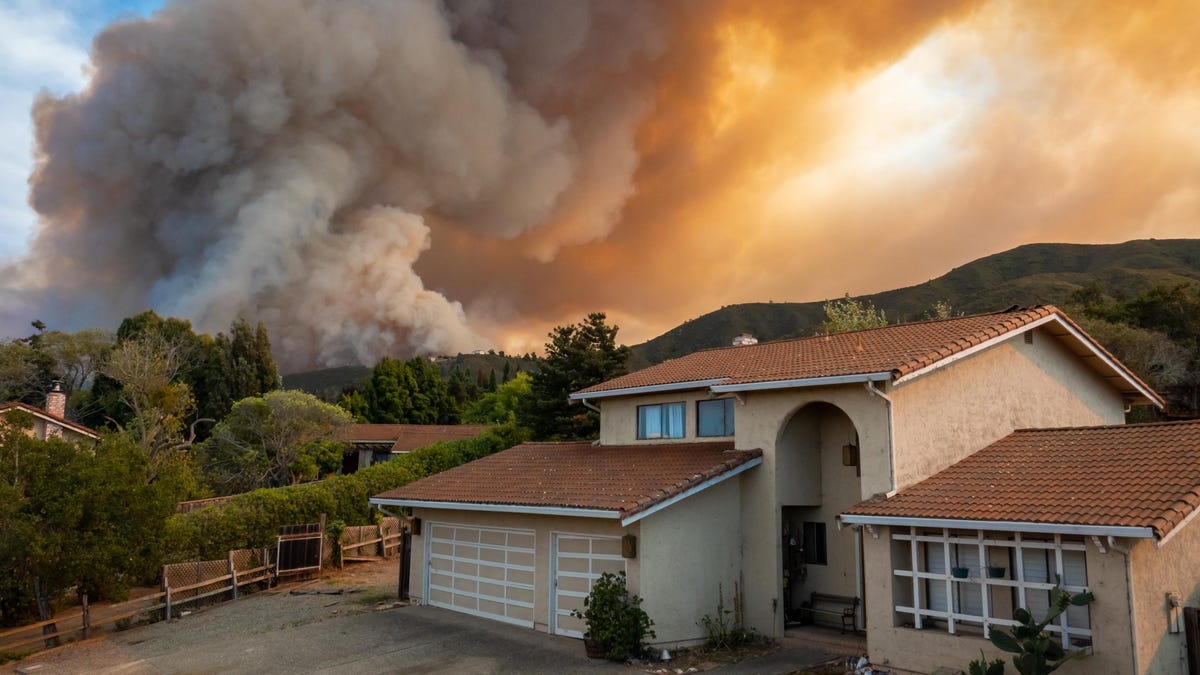Every Step You Need to Take Now to Prepare for a Climate Catastrophe Evacuation

Never before has it been so important for every household to have a last-minute evacuation plan. Our actions — and/or inaction — are exacerbating climate change, bringing different types of climate disasters and unprecedented levels of risk to communities that may not have experienced them before.
Even those who think they can be safe from any climate catastrophe should consider acting proactively rather than reacting to save themselves from tragedy by being unprepared. There have been 15 confirmed climate disasters in the United States this year, each with more than $1 billion in damage , according to the National Center for Environmental Information. Here are a few steps you can take to keep this number from going up.
Keep important documents safe and sound
Evacuation can be very sudden. You may not have time to look for your family’s passports and then run for tax documents from the basement. It is best to store important documents in a waterproof, fire-resistant safe that is light enough to carry around.
Some things you should keep in a safe:
- Passport
- Insurance policies
- Additional checks
- Copy of your driver’s license
- Social security card
- Numbers of bank, investment and credit cards
- Legal documents (wills, marriage and birth certificates, home ownership and vehicles)
- Cash or travelers checks
Get ready to evacuate with these must-have products:
- Protect your documents from floods and fires with this portable safe: DocSafe Lockable File Organizer Bag for $31.98.
- Be prepared for any injury with this First Aid Kit: $19.99 2-in-1 First Aid Kit .
- Get ready to escape the fire with this survival kit: EVERLIT Survival Emergency Fire Safety Kit for $64.94.
- Have everything you need in case of any natural disaster with this emergency bag: EVERLIT Complete 72 Hours Earthquake Bug Out Bag for $165.95.
Make copies and store documents in the cloud or away from home
You should keep copies of all these important documents in case your safe is lost or damaged, or you just don’t have time to restore it. You can make physical copies and put them in a safe or give them to a trusted friend or relative (somewhere far away from where you live, or they will probably suffer the same fate). You can also digitize them and put them on a cloud service like Google Drive or Apple’s iCloud.
Take inventory of your valuables
If you lose your home, your insurance will require as much detail as possible about everything you claim to have lost. The more information you have, the easier it will be for you to enter the correct cost of household items and not forget anything important. It can be as simple as taking pictures of rooms, individual items, or simple videos, or as complex as having an Excel sheet with each item’s model, serial number, and price. Ideally, you would like to be somewhere in between.
Assess where you are and your insurance policy
You would probably be devastated if you evacuated your home from a flood and did all the previously mentioned work only to find out your insurance plan doesn’t cover floods (most rental or homeowners insurance plans don’t cover floods – that’s a separate plan ). ).
You want to make sure you have the correct type and amount of insurance. If your valuables are easily worth $100,000 but you’re paying for the $50,000 maximum coverage, you’re ill-prepared. Call your insurance agent and ask if they will cover all of your valuables and the type of disaster you think you are more exposed to. (You should also consider life insurance if you live in an area with a high risk of natural disasters.)
While you are on the phone with your insurance, also ask about disability insurance. If you get hit by a natural disaster and can no longer work, can you survive on your savings? You must obtain sufficient disability insurance to cover 60% to 70% of your income.
When it comes to flood insurance, you can call the National Flood Insurance Program at 877-336-2627 or use FloodSmart.gov to select a provider.
If you are renting an apartment, be aware that your landlord’s homeowner’s insurance does not cover your personal effects. You must obtain renter’s insurance to protect your belongings.